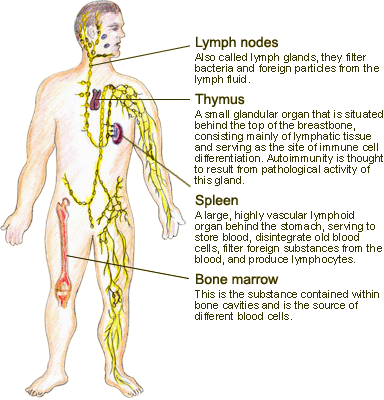Modern Immunology
Immunology is a study of about how the body identifies foreign bodies and reacts to them. In essence it is the study about the body's self defense mechanisms. The word "immunology" came from Latin "immunis", which was originally a law concept, and means "not subject to an obligation imposed on others"; e.g. immune from taxation. At first, immunology concentrated on studying anti-infection aspects only, which belonged to a branch of microbiology. In the 1960's, the rapid advancement of immunology expanded to include non-infectious aspects, such as autoimmune, allergy and immunodeficiency, consequently it became an individual science.
According to modern theory, the body depends on the immune system to fight against various infections from bacteria, microbes, viruses, toxins and parasites. It also clears up harmful materials inside our own body. The whole process can be understood as self-discrimination and elimination of foreign bodies in an attempt to create an internal equilibrium and provide physiological protection for the body. Thus, when the immune system is normal, health can be maintained. On the other hand, when the immune system is malfunctioning, disharmony will occur and give rise to illness. The above functions are carried out by an integrated body system, which includes organs (thymus, spleen and lymph nodes), tissues (skin and mucosal layers), cells (lymph cells and macrophages) and cell products (immunoglobulin, antibodies and complement).
To sum it up, the human immune system has three basic functions: defense, surveillance and homeostasis.
 |
| The Immune Organs of the Body |
|